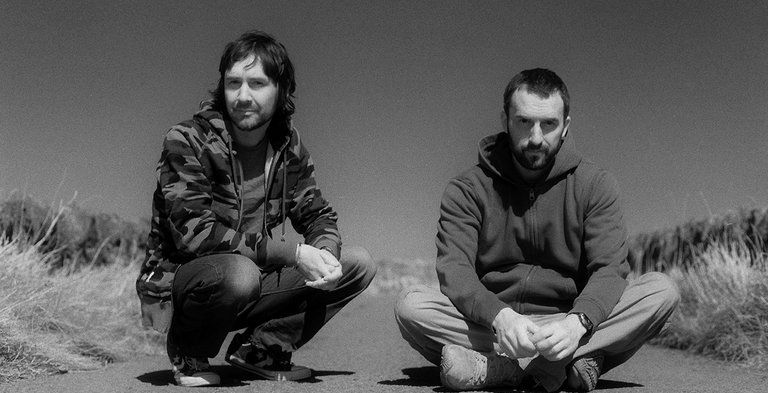Check out the first part of the article here if you haven’t yet.
Today is the 10th of June, 2023. Today we are celebrating Boards of Canada’s second major anniversary of 2023, which is the 10th anniversary of their latest album “Tomorrow’s Harvest”. Before diving into this album though, I want to continue from where I left off with the first part of this Boards of Canada article series.
After the release of “Music Has The Right To Children”, the duo releases a new EP called “In A Beautiful Place Out In The Country” in 2000, which has a darker and more eerie atmosphere compared to their last album overall. This twist of an atmosphere can be observed easily in the first two tracks of the EP: “Kid For Today” and “Amo Bishop Roden”, where the former has these subtle synth notes surrounded by heavy and ghostly atmospheric pads accompanied by a lush downtempo beat, and where the latter has a beat that’s more behind than the previous track, creating more space for the eerie atmosphere that the album tries to convey with those lead synth sounds. In addition, the EP and especially the track Amo Bishop Roden are a reference to the famous Branch Davidians, an apocalyptic cult with a really wild history that I would not like to discuss here too much, but the brothers’ interest on this duo is important to consider for their following releases since we will come across this concept of “apocalypse” later on. In A Beautiful Place Out In The Country was the first signal of the duo’s change in atmosphere, which would continue with their second album release on Warp Records: “Geogaddi”.
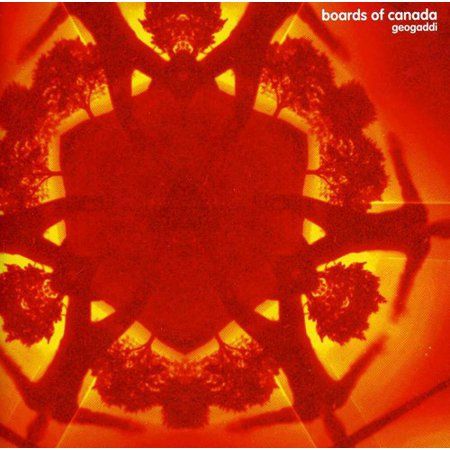
Geogaddi is probably the most mysterious record in the brothers’ discography in terms of the overall atmosphere. Released suddenly with nearly zero marketing and minimal amount of interviews in 2002, the album deals with many different themes from nature to mathematics to even occult themes (Bocpages, 2020). The terrifying opening keys of the album with the track “Ready Lets Go”, followed by the track “Music Is Math” which features the signature lush Boards of Canada atmosphere in the first half that suddenly evolves into an atmosphere filled with haunting and psychedelic voices in the second half, or the spatial and odd progression of the track “Gyroscope” with prominent reversed sounds, followed by the tracks “Dandelion” and “Sunshine Recorder” which sound like cut tracks from Music Has The Right To Children that were twisted in a parallel dimension and brought upon into our reality with their new dark atmosphere…
But it gets weirder. The track “Julie And Candy”, which is one of my favourites from the album, has this really odd sounding intro which was made with recorded whistles that were bounced back and forth between tape mics until the sound got destroyed according to the duo’s interviews (Bocpages, 2022a) which then evolves into a beautiful downtempo composition. Fast forward through the album, we encounter “The Devil Is In The Details”, where the name checks out because the track has a melody and a bassline that is an octave (6 whole tones) and a major sixth apart from each other, and they both repeat the first note 3 times, leading to three 6’s in a row, referencing the devil’s number (Bocpages, 2022b). Continuing with these twisted atmospheres and references throughout the album, we finally come across the track “Corsair”, a nearly 3 minute relaxing ambient loop that is followed by ‘technically’ the final track of the album: “Magic Window”. I am saying technically here because although it is the last track in the tracklist, it is nearly 2 minutes of pure silence. There is no sound. Nothing. The vinyl version of Geogaddi has its final side devoted to this track only, with that side of the vinyl not having any groove on it and instead having a family portrait drawn on it. Some rumours claim that Magic Window exists on the tracklist to make the album 66 minutes and 6 seconds long (which was an idea that came out of the Warp Records president Steve Beckett) referencing the devil’s number again. That’s up for discussion.
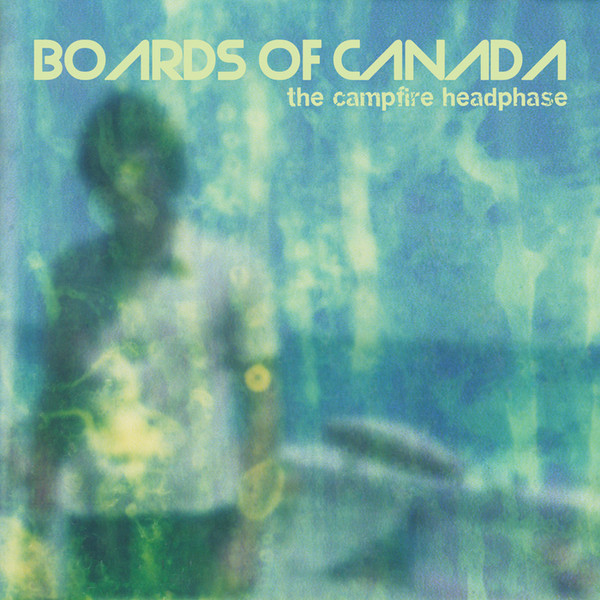
After the release of Geogaddi, apart from a couple of remixes, we don’t hear any new original material from the brothers until 2005, when they release their third album called “The Campfire Headphase”. Another significant departure from their previous sound, The Campfire Headphase sounds more organic with instruments that are new to their sound such as acoustic guitars and has a unique atmosphere that is really chill compared to their other records. It is probably the least favourite album among Boards of Canada fans, claiming that it is less ambitious compared to their other albums but this album has a special place in my heart due to the fact that the track “Peacock Tail” from this album was my first ever exposure to Boards of Canada back in 2015, which pretty much started my admiration. Peacock Tail is one of my all time favourite tracks ever and I think it is a beautiful example of progression in music. I always get mesmerised by the addition of new layers into the track from start to finish which also delivers a progressing feeling of melancholy and then a catharsis. This track is then followed by “Dayvan Cowboy”, one of Boards of Canada’s well known tracks, which kind of reminds me of a more chill and electronic version of Mogwai’s post-rock compositions. The other highlights in this album in my opinion are “84 Pontiac Dream”, which is probably the most oldschool Boards of Canada sounding track overall in the entire album (reminds me a bit of “Aquarius” from Music Has The Right To Children as well) while keeping some of the signature elements of The Campfire Headphase like the acoustic guitar solo at the end of the track, and the final track “Farewell Fire”, where the name checks out again like The Devil Is In The Details since the track’s progression really nails the vibe of a campfire that is lit and that slowly disappears as time progresses. It is a really beautiful and immersive ending.
Following the release of The Campfire Headphase, we get one more new EP from the duo called “Trans Canada Highway” in 2006, which features Dayvan Cowboy again along with a remix, and 4 new tracks that pretty much sound like B-sides to The Campfire Headphase. After this release, we don’t hear from the duo for a long while until the 20th of April, 2013, which is the date of the 2013 Record Store Day, celebrating independent record stores.
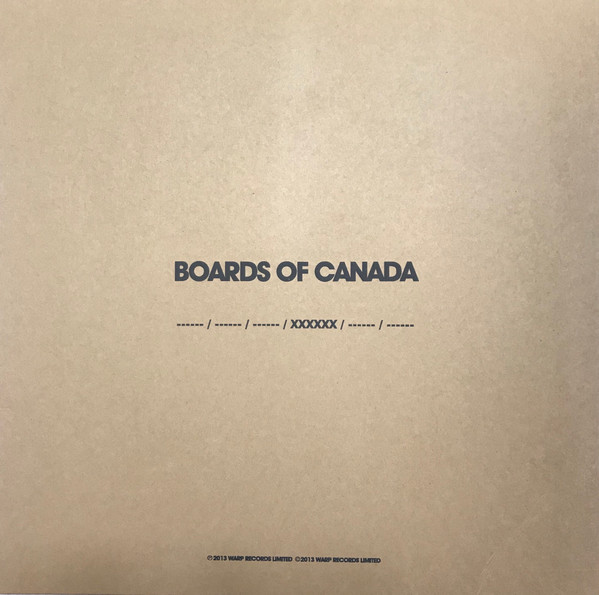
That day, 6 cryptic vinyls with cryptic messages were given to random customers in various independent record stores around the world. These vinyls shared one thing in common: they had a secret message and 5 more secret messages were needed to be found in order to solve the puzzle. Clues for these messages were eventually broadcasted on some YouTube videos, radio stations including Zane Lowe’s show on BBC Radio 1, TV channels such as Adult Swim and were even shown on some art galleries around London. This large cryptic marketing campaign eventually led to the reveal of Boards of Canada’s new album: “Tomorrow’s Harvest”, with a release date of 10 June, 2013.
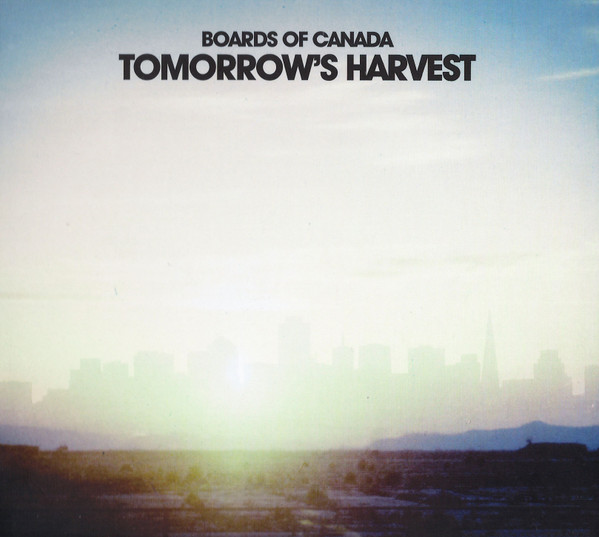
In my opinion, Tomorrow’s Harvest is the duo’s most ambitious release to date. There is an apocalyptic concept behind it, with themes of decay, desolation, dread and doom, with a cinematic feeling that reminds me of John Carpenter’s film soundtracks, as well as the aesthetic of “End Of Evangelion”. The immersion starts with the first track of the album: “Gemini”, which starts like a news broadcast that turns into an epic but anxious composition in a short while. Following Gemini, we encounter “Reach For The Dead”, another cinematic track with sci-fi atmosphere musical layers and a powerful synth arpeggio, accompanied by a signature Boards of Canada downtempo beat at the end. The third track, “White Cyclosa”, has these interesting helicopter sound effects in the background along with a suspenseful synth sequence, that gives the vibe of a rescue operation somehow. After this one, we finally reach to my absolute favourite from the album, “Jacquard Causeway”. I cannot tell you how many times I listened to this track and never got bored from it. The odd time signature of this track, an immersive synth progression with layers coming and going throughout the track, that angelic moment in 2:14 when that new synth layer kicks in… It’s pure bliss, and probably the most hopeful track in the entire album despite the themes that are portrayed here. Jacquard Causeway always makes me feel hopeful after I listen to it from start to finish. Moving to the fifth track, “Telepath”, we hear an intermission that is trying to send us a message in front of an eerie melody, that then leads us to the sixth track in the album, “Cold Earth”, where we hear Boards of Canada’s downtempo style with a science fiction themed composition and that is eventually followed by “Transmissiones Ferox”, which is kind of similar to “Telepath” with a cryptic message along with evolving synth sounds. The eighth track on this album, “Sick Times”, is another science fiction themed take on the duo’s signature downtempo style just like Cold Earth, with a creepy ending featuring distorted transmissions. We then reach to the middle point of the album with the track “Collapse”, featuring a synth arpeggio sequence over a post-apocalyptic and desolate soundscape, like waiting for an epic thing to happen during the aftermath of the apocalypse.
After “Collapse”, we somehow encounter a surprising change in sound with the track “Palace Posy”, which somehow gives me Cold War vibes with this track with its overall instrumentation and the vocals at the second half of the track. We return back to the cinematic science-fiction vibe with the next track, “Split Your Infinities”, again featuring an epic synth arpeggio and huge atmospheric pads at the background. The twelfth track in the album, “Uritual”, is a 2 minute dark ambient loop that is then followed by my second favourite track from the album, “Nothing Is Real”. It’s a simple yet very emotional and very thought-provoking track in my opinion that just makes me question myself and my surroundings. I don’t know if the track, with its name and the monologue in the track, is actually a reference to nihilism but the brothers have said during the interviews for this album that they “have become more nihilistic over the years” (Pattison, 2013) so there may be an influence here as well. Towards the end of the album after Nothing Is Real, we encounter the track “Sundown”, which is again a 2 minute ambient loop that sounds like a soundtrack for the climax of a science-fiction film, that is followed by two downtempo tracks: “New Seeds” and “Come To Dust”, where the former sounds like the beginning of a new chapter in a fantasy story and where the latter sounds like an epic discovery that happened. These all lead to the conclusion of the album with the track: “Semena Mertvykh”. Meaning “seeds of the dead” in Russian, this track is probably the most dreadful (not in a bad way) and hopeless moment in the entire album, with a really dark and doomed 3 minute and 30 second dark ambient composition.
Now here is the interesting thing about this album. Some listeners mentioned that listening to this album in palindromic order (meaning that you start listening to the first track in the tracklist and then listening to the last track in the tracklist and keep on doing this back and forth until you reach the middle point) creates a new narrative to the album, which, along with the track names and themes, creates a more coherent apocalyptic narrative that starts with Gemini and ends with Collapse. I have tried to listen to this album that way and while I find the idea cool and also hear some nice new moments with the transitions, it still feels odd to me. Transitioning from Gemini to Semena Mertvykh doesn’t feel right to me musically as an example. However, the idea with this narrative is basically that the part from Gemini and Semena Mertvykh until New Seeds depicts an apocalyptic event and its aftermath to create a new civilization and a new chapter for humanity in Earth that continues until Collapse where another apocalyptic event happens as the point of no return, which makes that first transition make sense thematically since Gemini is the apocalyptic event and Semena Mertvykh is the seeds of the dead after the apocalypse, waiting to be born again with the new civilization. In addition, Tomorrow’s Harvest being an album that eventually tries to tell the listener that basically “we are doomed” makes this narrative work as well since the idea tells us that no matter how we try to survive the apocalypse, we will bring it again if we don’t change ourselves, so there’s the aspect of the criticism of humanity’s actions as well that led to this “doomer” feeling. If you want to listen to the album in palindromic order, I have attached a video below from YouTube by the user named “Thomas Hatcher” who published the album in that way:
Tomorrow’s Harvest is an amazing concept album that is thought-provoking and makes us question our actions for our future. If I had to summarise the album in one sentence, I would probably say that it’s like listening to the end of the world in a parallel dimension as a warning to our future. Since Tomorrow’s Harvest’s release in 2013, we haven’t heard anything new from Boards of Canada other than a couple of remixes and vinyl reissues as of today. They are still secretive as they have always been, but I believe we will hear news about their fifth upcoming major release. We have confirmations from insiders that it exists, but right now we can only cope with this information. I still believe 2023 will be the year that we are going to hear news about the upcoming release from Boards of Canada, and I am so excited for what’s to come.
Bibliography:
Bocpages (2020) Geogaddi, bocpages. Available at: https://bocpages.org/wiki/Geogaddi (Accessed: 10 June 2023).
Bocpages (2022a) Julie And Candy, bocpages. Available at: https://bocpages.org/wiki/Julie_And_Candy (Accessed: 10 June 2023).
Bocpages (2022b) The Devil Is In The Details, bocpages. Available at: https://bocpages.org/wiki/The_Devil_Is_In_The_Details (Accessed: 10 June 2023).
Pattison, L. (2013) Boards of Canada: ‘we’ve become a lot more nihilistic over the years’, The Guardian. Available at: https://www.theguardian.com/music/2013/jun/06/boards-of-canada-become-more-nihilistic (Accessed: 10 June 2023).
